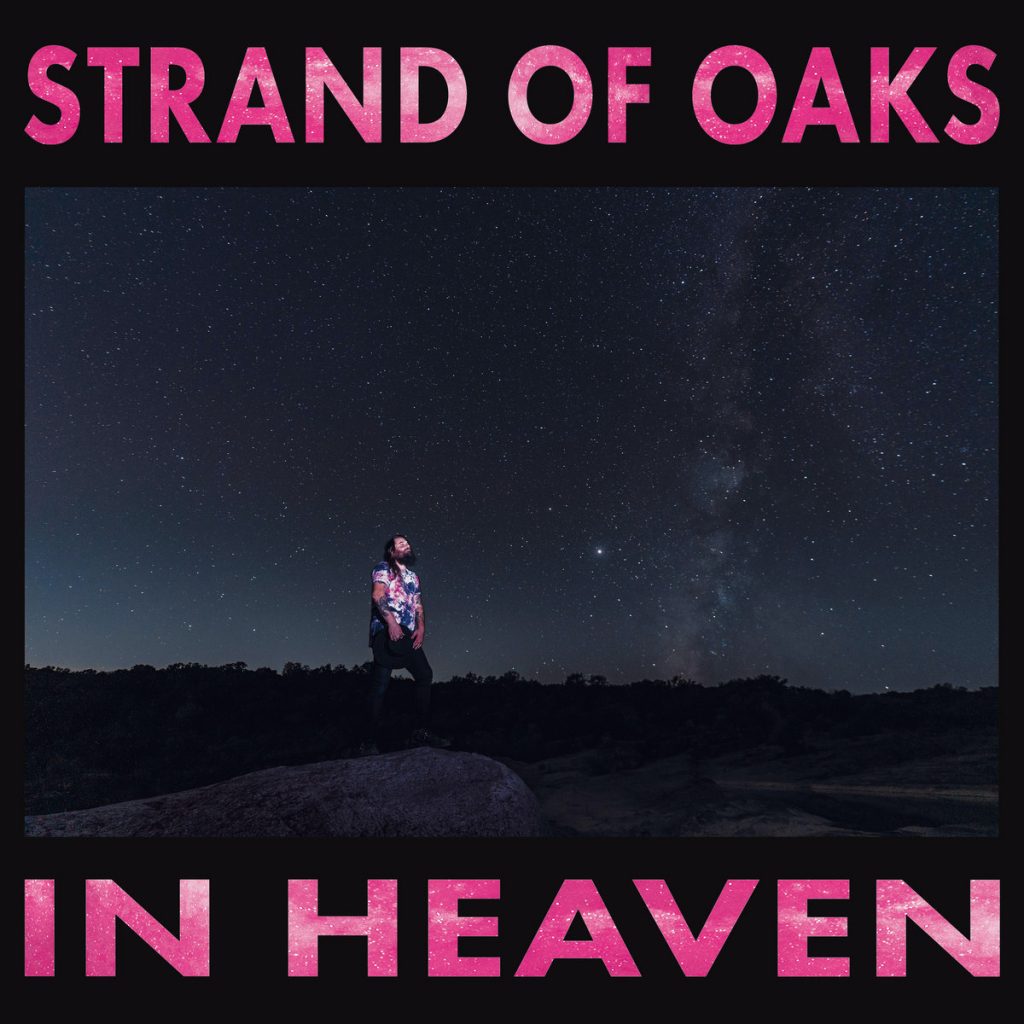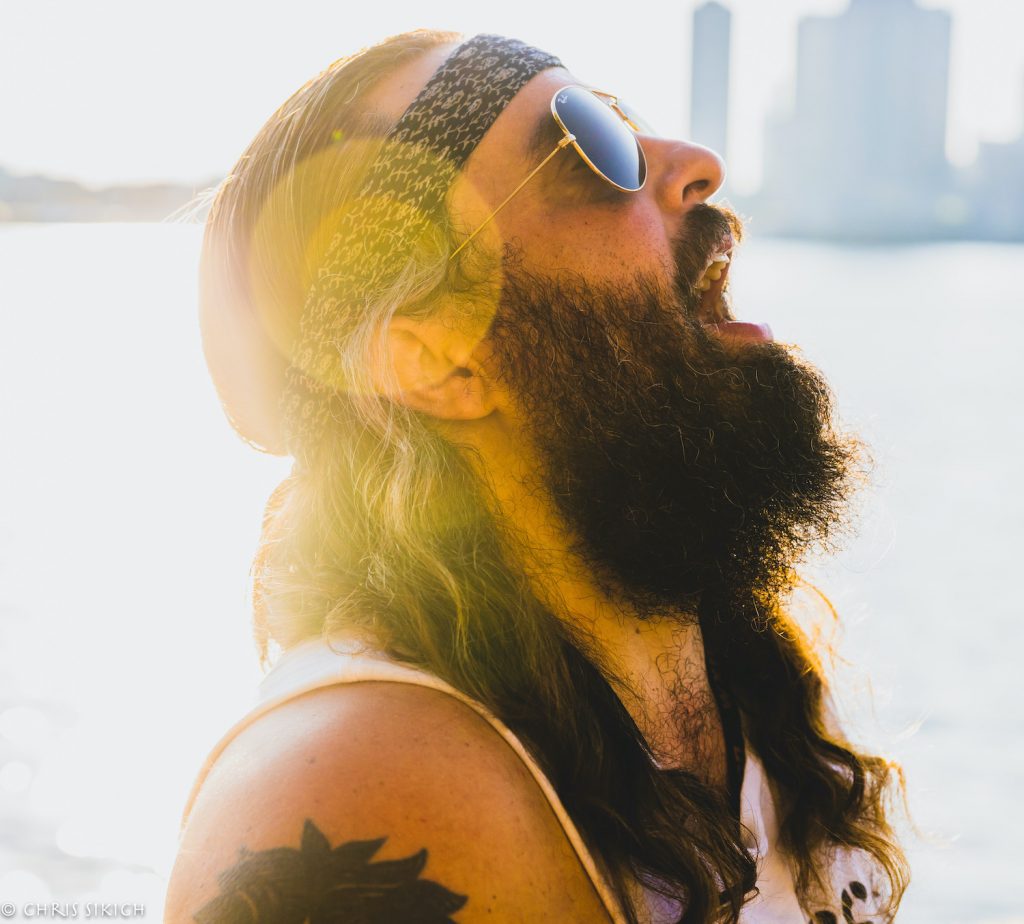
Hobart Rowland interviews the musician who made the best record of 2021. Photos for MAGNET by Chris Sikich.
Strand Of Oaks’ In Heaven (Galacticana) is one of the most life-affirming albums to emerge from the pandemic-addled abyss of a fractured music industry. That’s all the more interesting given that Tim Showalter was battling a bevy of demons in the months leading up to its release—everything from addiction to displacement to grief. Abusing alcohol in the extreme and barely holding it together during the making of 2019’s Eraserland, Showalter was also dealing with the late-2018 loss of his mother-in-law in a car accident and the death his of beloved cat, Stan. Though he could’ve just as easily packed it in, Showalter rebounded instead. He quit drinking to better support his wife, Sue, through the grieving process, and the couple left their adopted hometown of Philadelphia for more moderate weather, a healthier lifestyle and a fresh circle of friends in Austin, Texas.
Not long after relocating, Showalter headed to Los Angeles to record In Heaven with Kevin Ratterman at his Invisible Creature studio. With COVID still a factor, the two were mostly on their own, with Ratterman hammering away on drums and Showalter making his first full-fledged return to the synth since 2014’s HEAL. Filling out the album’s lineup: My Morning Jacket’s Carl Broemel (guitar) and Bo Koster (keyboards), Cedric LeMoyne (bass) and Scott Moore (violin). Smashing Pumpkins’ James Iha makes a surprise appearance, adding guitar and vocals to “Easter.”
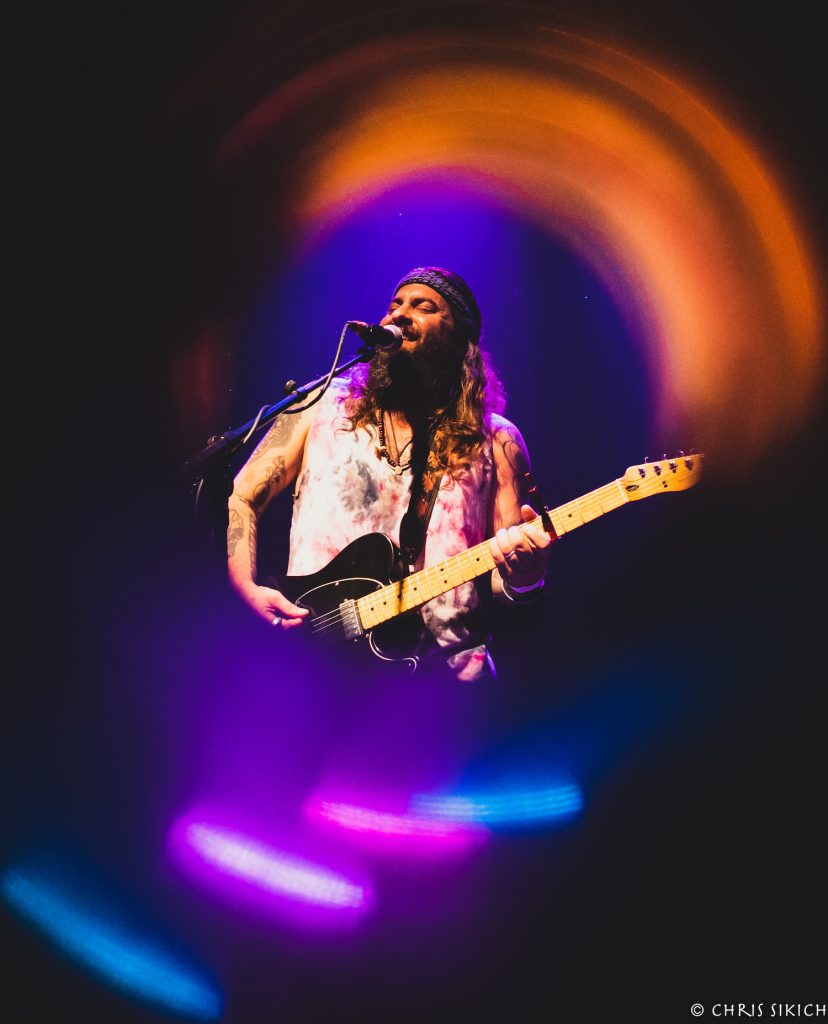
Not a stray narrative thread or emotional detour is wasted on In Heaven—and its sonic peaks and valleys are majestic, whether it’s the Austin-bound rallying cry of the aforementioned “Easter,” the gut-wrenching piano balladry of “Horses At Night,” the U2-leaning interstellar bliss of “Sunbathers” or the greasy-slick psych-blues rock of “Sister Saturn.” The album strikes a satisfying balance between personal sentiment and offbeat story songs that honor those currently commanding Showalter’s respect and sympathy. There’s “Somewhere In Chicago,” a modest masterpiece that pays tribute to the late John Prine in the least obvious way. As further evidence he can do no wrong in the creative red zone, Showalter delivers “Jimi & Stan,” a semi-hilarious, utterly moving tribute to his deceased feline friend that envisions him “makin’ friends” and “goin’ to shows” with Hendrix inside the pearly gates.
Though it may be too soon to say whether In Heaven is a career-defining statement, it’s certainly the album we’ve been waiting a dozen years for Strand Of Oaks to make. Showalter was thrilled when we delivered the news that his seventh release occupies MAGNET’s top slot for 2021. From his new home in Austin, the Indiana native fielded our questions with characteristic Midwestern graciousness.

When we last spoke around the time of 2014’s HEAL, you and your wife were battling back after a serious a car accident. Now, you’ve had to deal with the death of your mother-in-law under similar circumstances.
I kind of wish my bio read, “Tim went to Hawaii and had a good time.” [Laughs] With HEAL, if felt so cathartic to expunge all of those bad things, and it came out in such a dramatic way. This time was different because I really had time to process things and work with my wife to deal with all the bad stuff. Obviously, we don’t plan on these things happening. But with In Heaven, I felt like it was the first time I took some tough times in my life and said, “I’m gonna flip this and celebrate the fact that I actually got to be loved by these people—and my kitty.”
What motivated your move to Austin?
Austin is a place that I’ve always loved, and I have a huge friend base here. We found a house we could afford and started the next chapter of our lives down here. I love being hot; I love the sun. There’s no city that means more to me than Philly. It’s where I became the person I am now. But we had a lot of sad stuff happen, and my wife and I just needed a change. But I’ll always consider myself a Philadelphia act.
You still have that warm Midwestern accent.
It would probably take years of vocal coaching to get rid of it. But it’s good to have that because if I saw myself on the street, I may cross the street. That’s why I always smile in press photos because I worry that if I don’t smile, I’m gonna look like a nu-metal band.
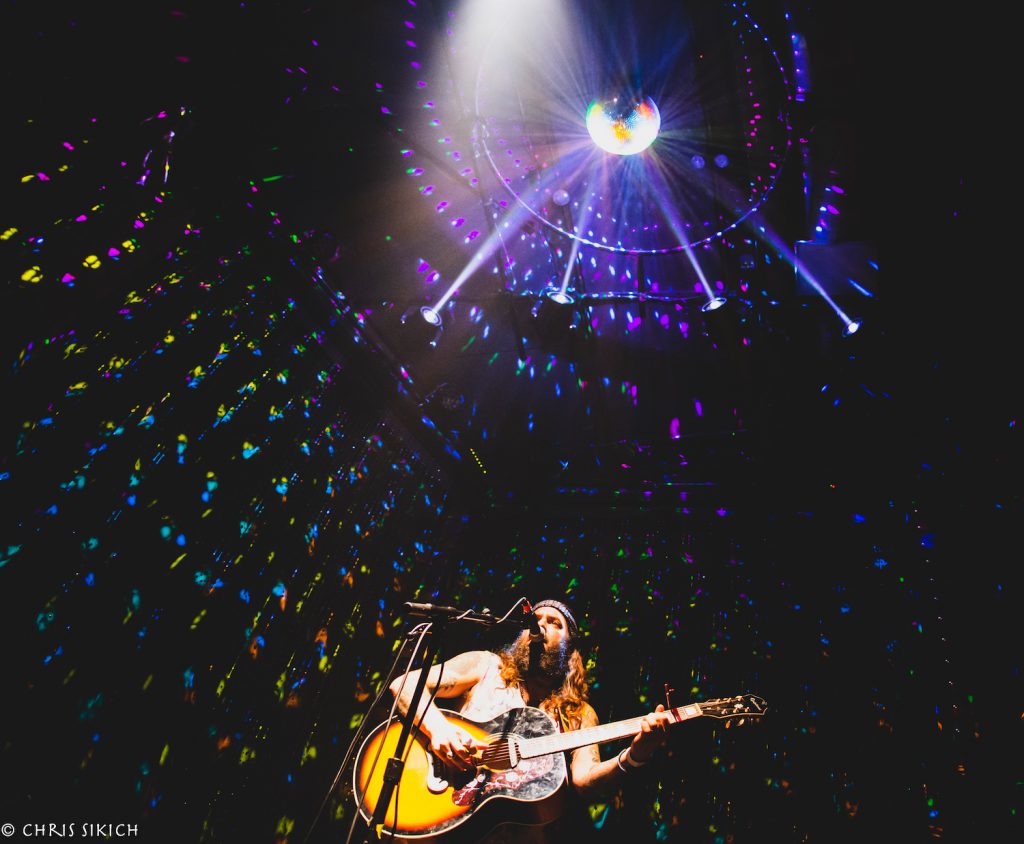
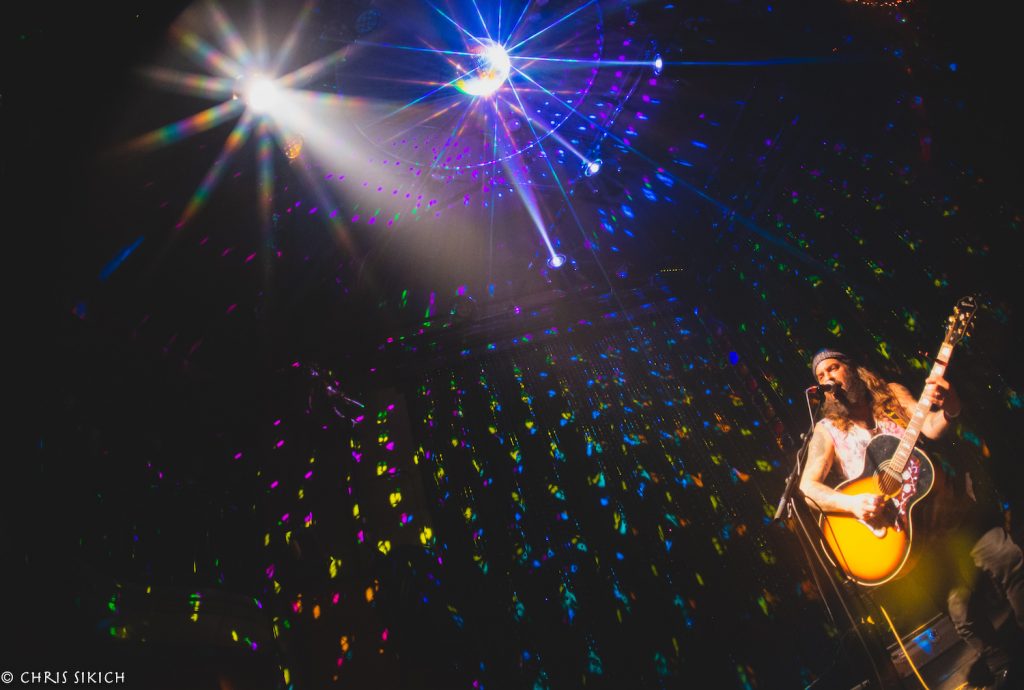
What if I told you In Heaven was the Strand Of Oaks album I’ve been waiting for?
You’d be the first person to say that. [Laughs] But, really, this is the album I’ve been working toward all along. I’m terrible in the kitchen—I can maybe make good pasta. I feel like records are similar to recipes. You do get better every time you make one. You don’t land on the perfect recipe right away, even if it might still be wonderful to eat. As I’ve gotten older, I’ve tried to treat the time I’m in the studio as sacred. An album is something made in stone that will hopefully live much longer than I do. I actually do love the process of aging because I don’t worry as much about the things I used to. It’s like the devil’s handoff—I look older and weirder every day. But at the same time, I feel like I communicate with other people better and I communicate my own art better.
Was In Heaven a tough album to make?
We didn’t have a lot of discussion in the studio—I’d brought in pretty finished demos. We literally just made the songs. I know that sounds oversimplified, but it was just such a fun experience recording this album.
There’s zero waste. Even “Hurry”—the only extended jam on the album—feels a lot shorter than it is.
If I was left to my own devices, “Hurry” could’ve been 25 minutes long. It has like five key changes in six minutes, and it was the easiest song to write. I really stretched things out with the last record. I had My Morning Jacket and these big, long songs I wanted to accomplish. I worked extremely hard to make In Heaven concise but still feel like you can live in it. I wanted there to be a lack of exhaustion when you finish it. I recently put on Pink Floyd’s Dark Side Of The Moon from beginning to end, and it’s only 43 minutes long. Without knowing that, I would’ve said it’s, like, two hours long. That’s the weird trick I wanted to do with In Heaven.
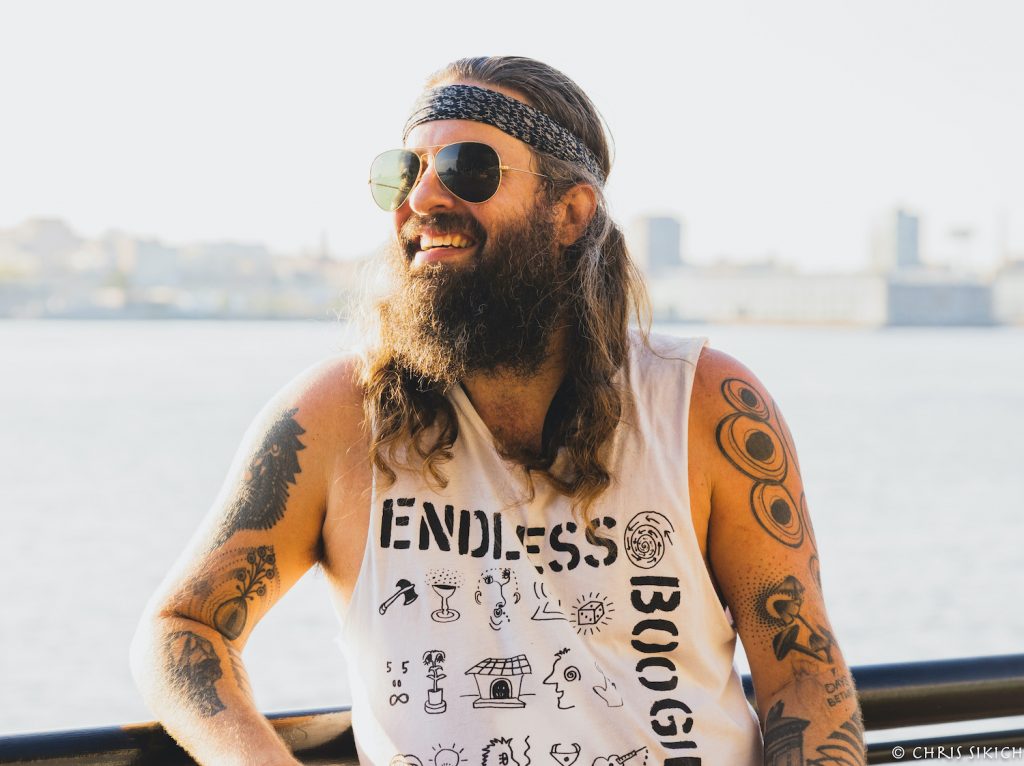
The ’80s and ’90s influences are pretty obvious. Is that The Edge I hear on “Sunbathers”?
A monumental influence for this album was Emmylou Harris’ Wrecking Ball. That has members of U2 on it and (producer) Daniel Lanois. The Edge is a huge influence on my guitar playing. I’m not a shredder, but I like melody. And the acoustic guitar on this album … I listened to Tom Petty’s Full Moon Fever probably for a year straight. It’s been my favorite album since I was eight. I heard “Zombie Zoo” in my uncle’s car and was like, “What is this?” The acoustic guitar is a major instrument on the album. Every time you hear one strumming, it’s like 12 different guitars stacked. Another glowing influence was very much Talk Talk. Laughing Stock, Spirit Of Eden, The Colour Of Spring—those albums are my guiding light when I go into anything.
Would this have been a different album if the pandemic never happened?
It’s a big reason why In Heaven is the way it is. I spent seven months writing this album, working every day and fine tuning. I wrote Eraserland in two weeks because I had a deadline. My Morning Jacket booked studio time without telling me to basically save my life and get me out of a depression—and if My Morning Jacket gives you a homework assignment, you better follow up on it. For this one, I had nowhere else to be except for my room. Some of the songs came before the pandemic—“Horses At Night” and “Hurry.” When the lockdown happened, I wrote (leadoff single) “Galacticana” that day. I’d just gotten off an amazing European tour, and we were playing better than we’d ever had. “Galacticana” came out of me yearning for that so bad. I was so sad … thinking about not being able to do what I’d done for most of my life.
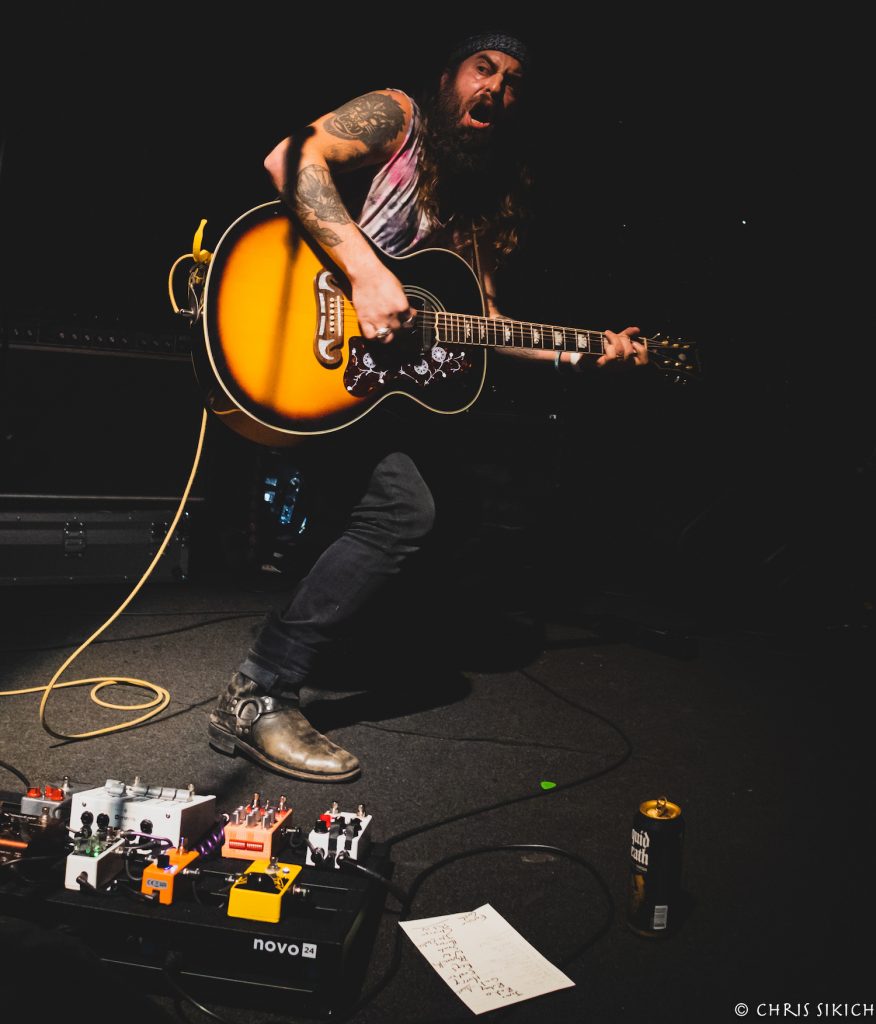

How did giving up alcohol make things different?
I don’t know any other way to say this … Everything was better. Every element of the creative process was more focused and stronger for me. I wrote Eraserland at the height of my problems with alcohol. The writing was the main difference. I used to think I had to drum up some sort of chaos in order to get good art.
It’s almost like Eraserland is the tunnel, and In Heaven is the light at the end of it.
Woo … That’s why you have your job and I have mine. [Laughs] That’s as good a description of Eraserland as I could’ve come up with myself. Eraserland needed to happen—I needed that record. I needed the support and love of the people that were part of it to get me out of that part of my life. The HEAL through Eraserland era was a pretty chaotic period for me. For this one, I was in a healthier place than I’d ever been. I was gardening; I was walking in the morning; I was lifting weights and working on my house. My brain was getting activated by physical exercise, and my mind was that much more prepared. I know now that you actually need to be in a very clean state of mind in order to dig deep into the ether. I used to think the opposite.

